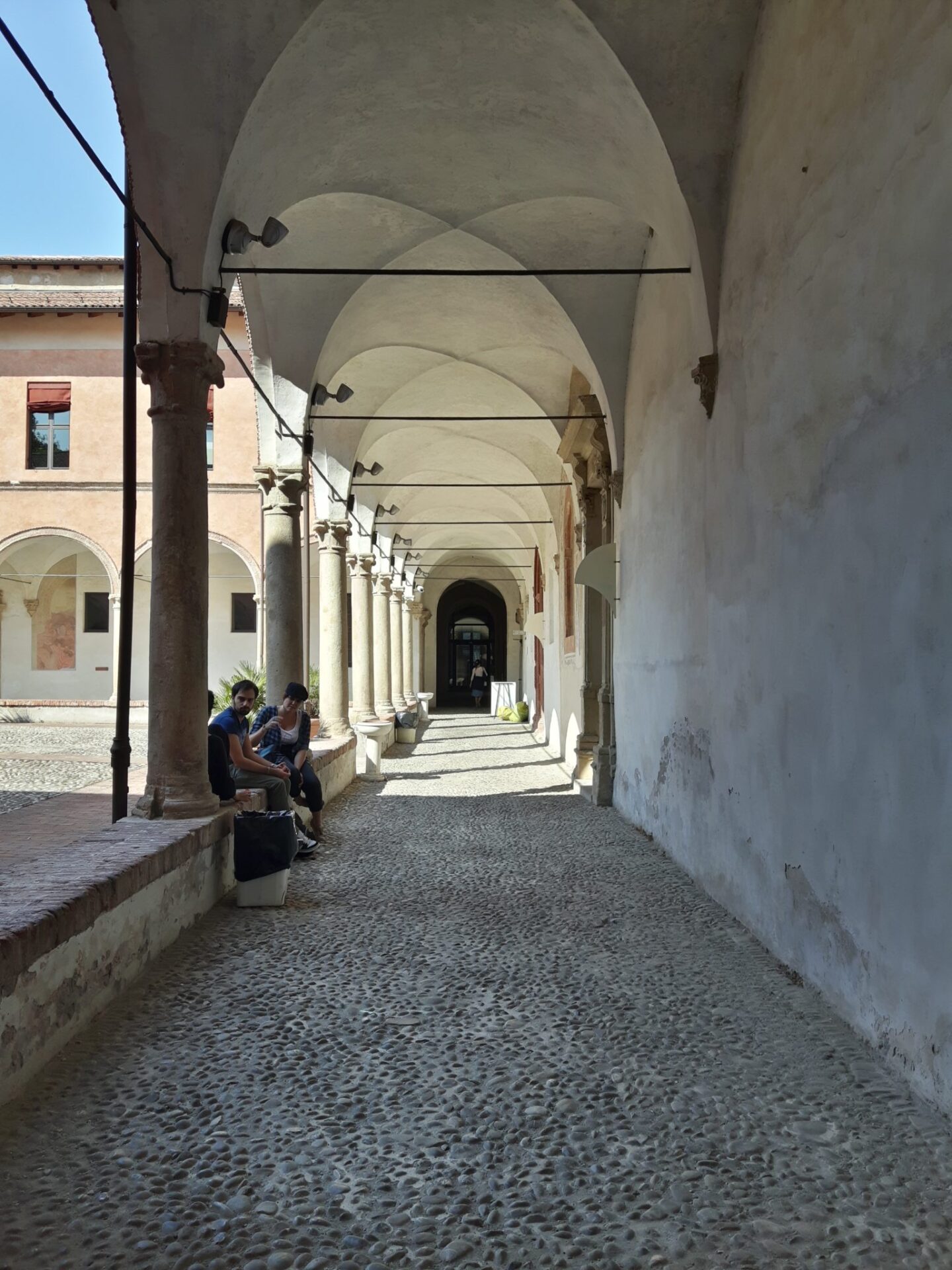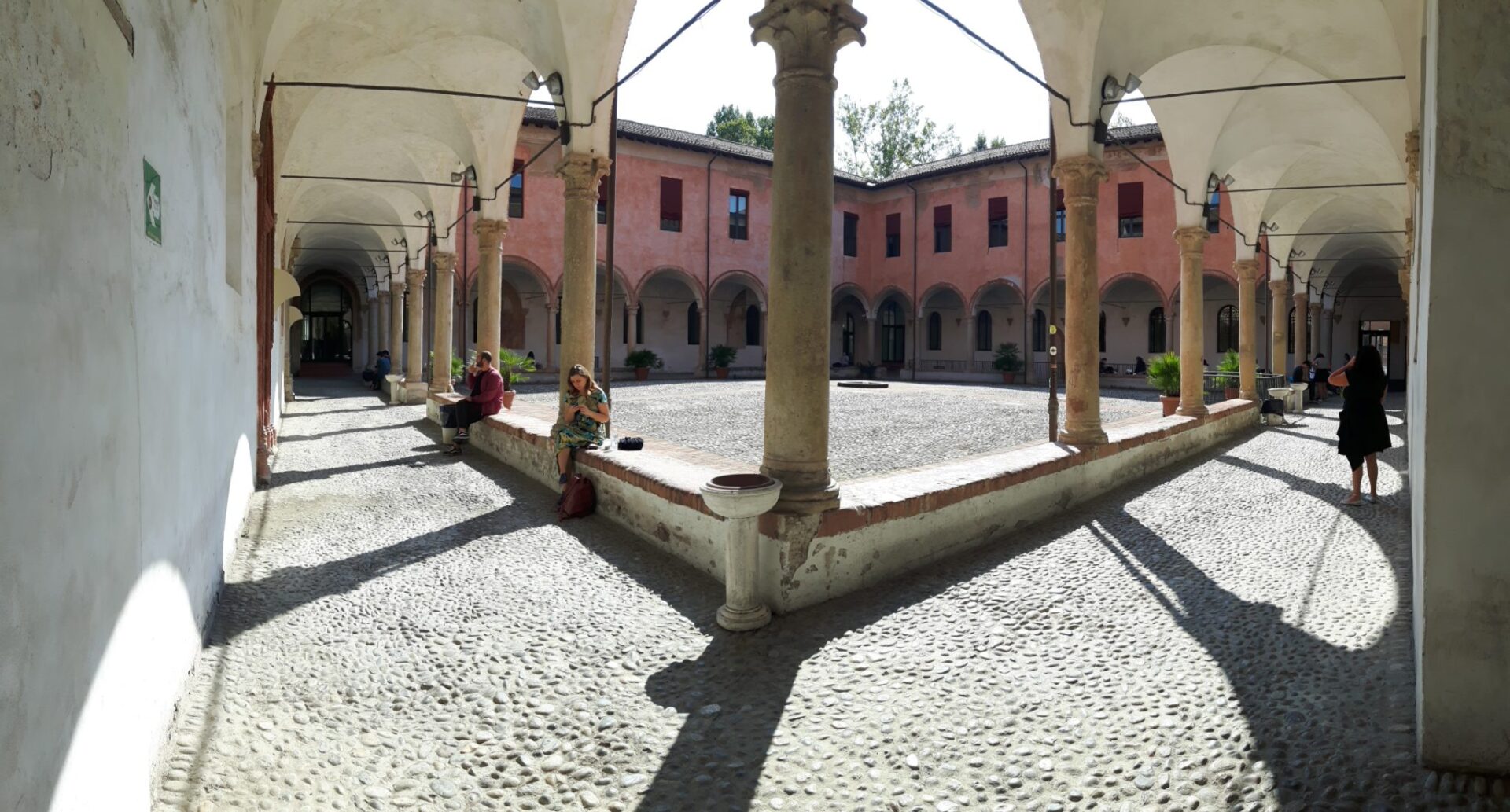
THIS IS A GUEST POST BY CIMA 2016-17 TRAVEL FELLOW SILVIA BOTTINELLI.
Nestled within the spaces of the Santa Cristina Convent in Bologna, the Biblioteca delle Donne (The Women’s Library) is the most prominent Italian library devoted to gender studies and feminism.
Its rooms and collections occupy part of a historical building, which is shared with the Federico Zeri Foundation and the University of Bologna’s DAMS (Art, Music and Spectacle’s Disciplines). All of these institutions offer valuable resources for art historians.
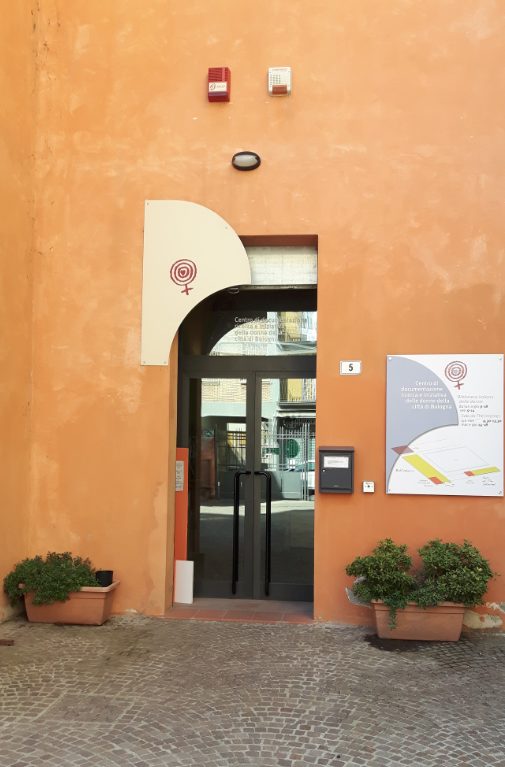
The Biblioteca delle Donne’s catalogue includes literature on a variety of subjects, such as women’s movements, female creativity, and gender divide, among others.
The library’s historical holdings include 2,000 monographs and periodicals pre-1945; Sofia’s Library, with its 4,000 books on literature for girls; and Rosi Braidotti’s collection of feminist theory. The donations Gianelli and Pozzati focus on women’s art. Viewing items from these two last collections is a privilege for scholars, who, like myself, are interested in feminist art.
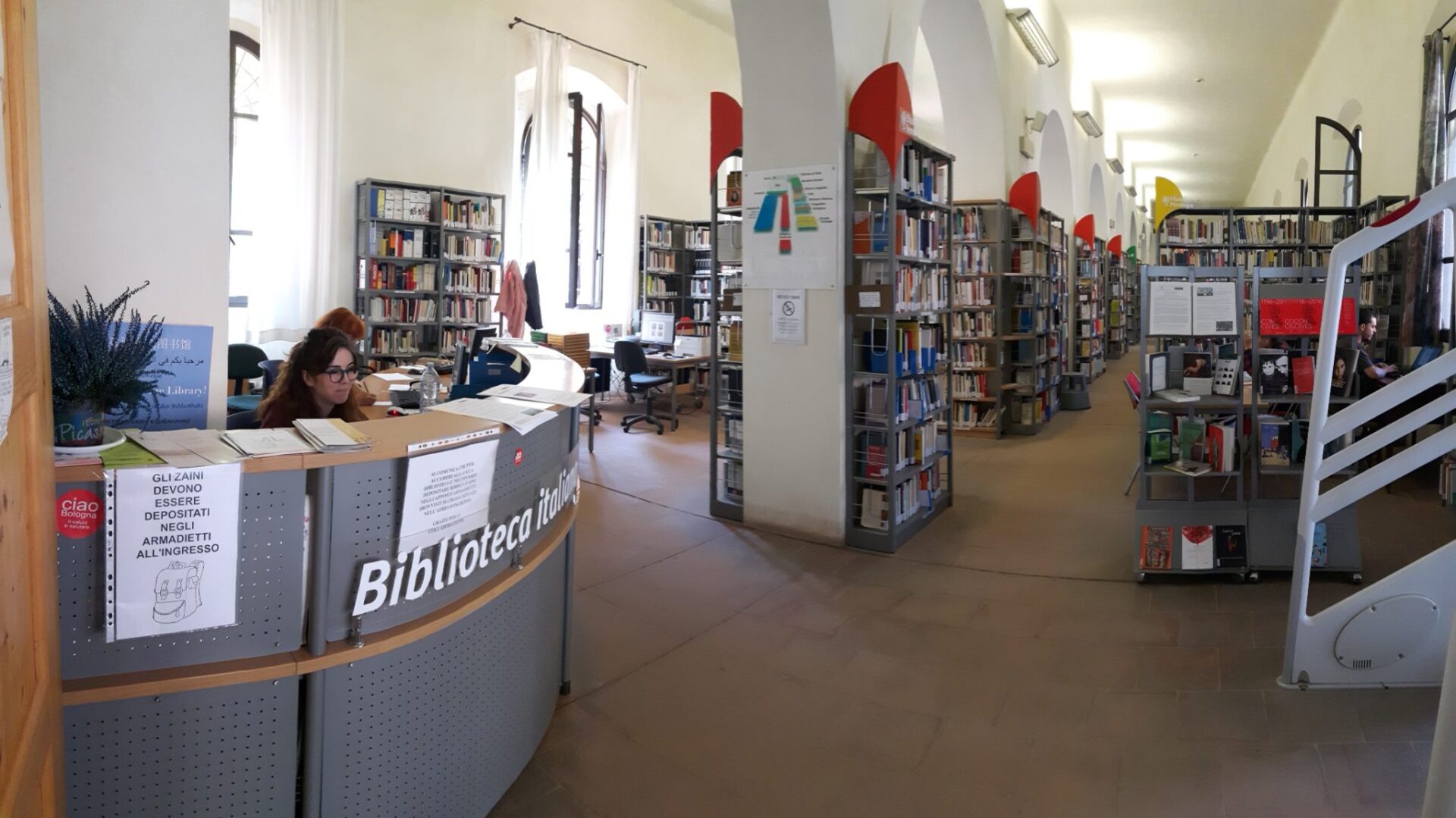
Bologna is one of the cities that I am visiting on my CIMA Travel Fellowship to conduct a study about the representation of domestic living in Italian visual culture, from the 1940s to the 1970s. Although I do not exclude the work of male artists from my discussion, I give particular consideration to women’s perspectives on the subject of the home. The items that I could view at the Biblioteca delle Donne were enlightening. Among them, I found rare books about Carla Accardi, Giosetta Fioroni, Mirella Bentivoglio, and Maria Lai, to name a few artists that are covered by my research.
At the Biblioteca delle Donne I could also view a number of women’s magazines, from the feminist Noi Donne to the inter-war publications Donna Fascista and Eva, without counting various mainstream periodicals of the post-war period, such as Gioia, Arianna, and more. Between the magazines’ pages, one can read the transformation of women’s image through the 20th century. Illustrations, photographs and text contribute to define the expectations of women in the private and public spheres. As significant as they are to understand the history of women’s roles in the family and society, women’s magazines are hard to find in Italian libraries, as one can easily realize by viewing the Italian National Catalogue of Periodicals (ACNP). Unfortunately, several public institutions have not considered these publications of any cultural significance, and have thus chosen not to preserve them. In marked contrast, the Biblioteca delle Donne, because of its attention to women’s culture specifically, has collected women’s magazines with particular dedication.
The periodicals that I could view are only a selection of the holdings kept by the library. In fact, the Biblioteca delle Donne owns 495 titles, 108 of which are still current. Among them, there are some historical items from the 19th century, such as Cordelia.
The covers of select historical journals can be viewed online, thanks to the Digital Library’s project, which is sponsored by the Italian Minister of Heritage and Cultural Activities (Ministero dei Beni e Attività Culturali). The proper maintenance of delicate paper documents is fostered by the Digital Library. Given the possibility to view the periodicals’ covers online, there is less a need to physically browse the pages, which have become particularly thin and fragile through time. The Digital Library provides a great service to scholars who are not based in Bologna, yet are interested in studying the documents that are accessible online. These materials include feminist manifestos and flyers since the 1980s, rare books mostly from the 19th and 20th century (with the notable exception of Ludovico Domenichi’s La Nobiltà delle Donne from 1549), and of course periodicals.
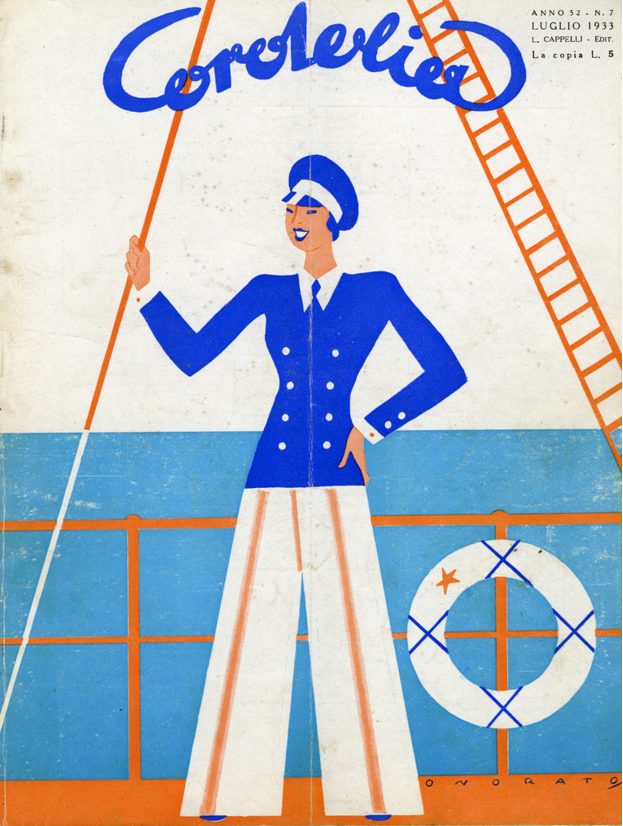
Scholars who must view specific publications listed in the library’s catalogues can also request a digital copy (in respect of copyright laws) by contacting the staff directly. This service is offered at very reasonable prices.
The library functions as a repository of historical information, but it is also active in the shaping of contemporary knowledge about gender. EBook@women, a digital publishing house and bookstore focused on feminism, is linked to the Biblioteca delle Donne. One can find both new texts and classical feminist books, which have been digitalized for easier access.
The distinctive characteristic of the Biblioteca delle Donne—that is, its concern with both the preservation of historical memory and the improvement of the current condition of women and LGBT individuals in society—is due to it being part of the Associazione Orlando. Orlando is an independent feminist association that was founded in Bologna in the 1970s. In addition to the Biblioteca delle Donne, Orlando organizes lectures, screenings, and activities, with the goal of “increasing the opportunities of living a beautiful life for every woman and men.” Education, research, and intellectual exchange are seen as important ways to reach such a goal.
